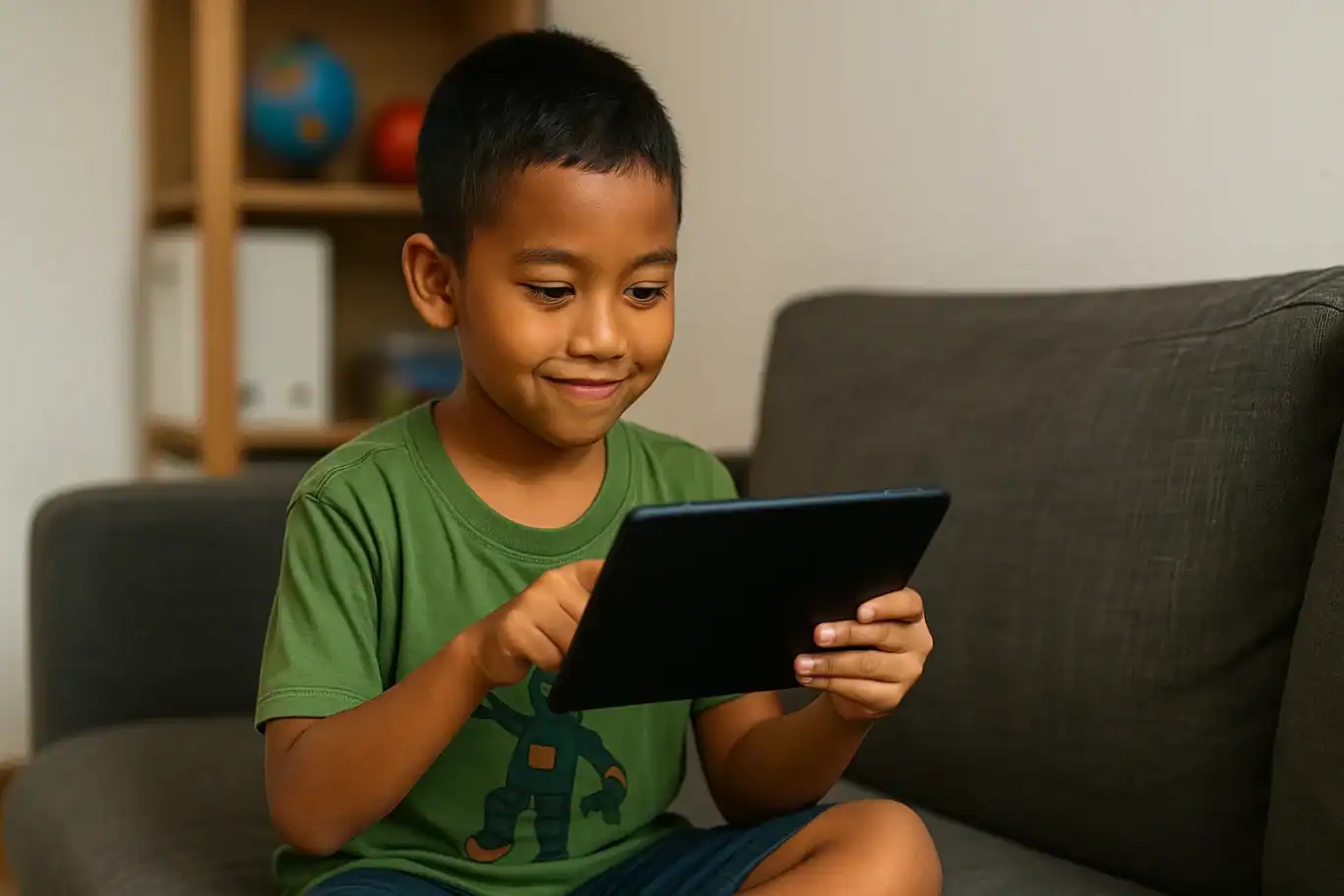Technology Literacy for Children: Preparing a Digital-Savvy Generation
In today’s digital age, technological skills are no longer optional but essential for every child. Technology Literacy for Children is not only about knowing how to operate devices, but also understanding how to use technology wisely, creatively, and productively. By equipping children with these skills from an early age, parents help them navigate the digital world safely and effectively.
Benefits of Technology Literacy for Children

Children with strong Technology Literacy for Children can critically evaluate information, understand basic technological concepts, and use digital tools for learning and creativity. These skills prepare them to face academic challenges as well as future career demands. Additionally, children can develop creativity, logical thinking, and problem-solving abilities through engaging technology-based activities.
How to Develop Technology Literacy in Children
Parents can start fostering Technology Literacy for Children by introducing age-appropriate digital devices and educational applications. Activities such as simple digital projects, educational games, or basic coding lessons can help children understand technology concepts while enhancing critical thinking skills. Proper guidance ensures that children are not just consumers of technology but also creative and productive users.
The Role of Schools and Educational Institutions

Schools and educational institutions play a crucial role in supporting Technology Literacy for Children. Structured learning programs such as coding classes, robotics workshops, and interactive educational apps provide hands-on experience that makes learning technology fun and meaningful. Timedoor Academy offers various classes that emphasize digital literacy through practical and interactive approaches, allowing children to learn while enjoying the process.
Digital Skills as Preparation for the Future
Having Technology Literacy for Children is not only beneficial now but also an essential foundation for the future. Children who are accustomed to using technology productively will find it easier to adapt to the demands of a digital workforce. Furthermore, technology literacy enhances communication, collaboration, and innovation skills, which are crucial in both social and professional environments.
Tips for Parents to Support Technology Literacy
Parents can support Technology Literacy for Children through several simple strategies. First, set limits on screen time to ensure a healthy balance between online and offline activities. Second, select age-appropriate content and educational apps. Third, participate in children’s digital activities, such as guiding them in coding projects or creative applications. This involvement encourages children and motivates them to use technology positively.
Combining Hobbies with Technology Learning

A highly effective approach to developing Technology Literacy for Children is integrating a child’s hobbies with digital learning. For example, children who enjoy gaming can be guided to learn coding or create their own simple games. This not only channels their interests productively but also teaches logical thinking, creativity, and teamwork skills that are applicable in various aspects of life.
Technology Literacy as a Key to Child Development

Ingin tahu detail program?
Technology Literacy for Children is a key factor in nurturing children to become intelligent, creative, and adaptable in a rapidly changing digital world. With appropriate guidance from parents and educational institutions, children not only gain proficiency in technology but also learn to use it responsibly and productively. Investing in digital literacy provides long-term benefits for education and personal growth.If you want your child to start developing digital skills in a fun and interactive way, sign up for a free trial at Timedoor Academy today. Here, children learn technology in practical and creative ways, guided by professional tutors who understand the needs of modern learners.